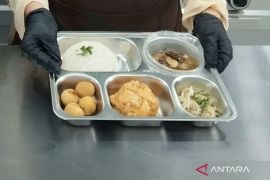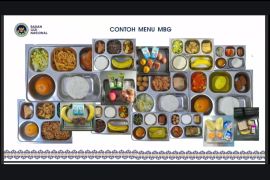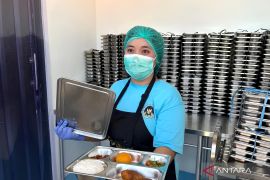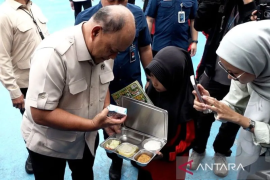Speaking at the Presidential Palace complex in Jakarta on Monday evening (Oct. 20), Hindayana said the policy aims to ensure that every meal served to students is safe, nutritious, and free from health risks.
“We are working to equip all Nutrition Kitchen Service Units (SPPGs) with rapid test kits to examine food ingredients. Japan’s century-long experience in nutrition shows that 90 percent of digestive disorders stem from the quality of raw materials,” he said.
Hindayana explained that BGN has established new standards for SPPGs, setting their average capacity at 2,000 to 2,500 children, expandable to 3,000 when staffed by certified cooks.
“We are also requesting professional chefs to mentor new SPPGs for five days, and if necessary, the assistance can be extended,” he added.
He noted that each kitchen unit will be equipped with advanced food tray sterilizers capable of drying cleaned containers within three minutes at a temperature of 120 degrees Celsius.
Hindayana also stressed the importance of water quality, requiring all cooking water to be officially certified as safe, similar to bottled or refillable drinking water.
Since water quality varies across Indonesia, he added, specific measures will be taken to address this issue.
Related news: Indonesia trains 30,000 MBG food handlers to boost nutrition standards
Related news: BGN deploys 5,000 chefs to strengthen free meal kitchens nationwide
Translator: Andi Firdaus, Mentari Dwi Gayati, Cindy Frishanti
Editor: Primayanti
Copyright © ANTARA 2025












